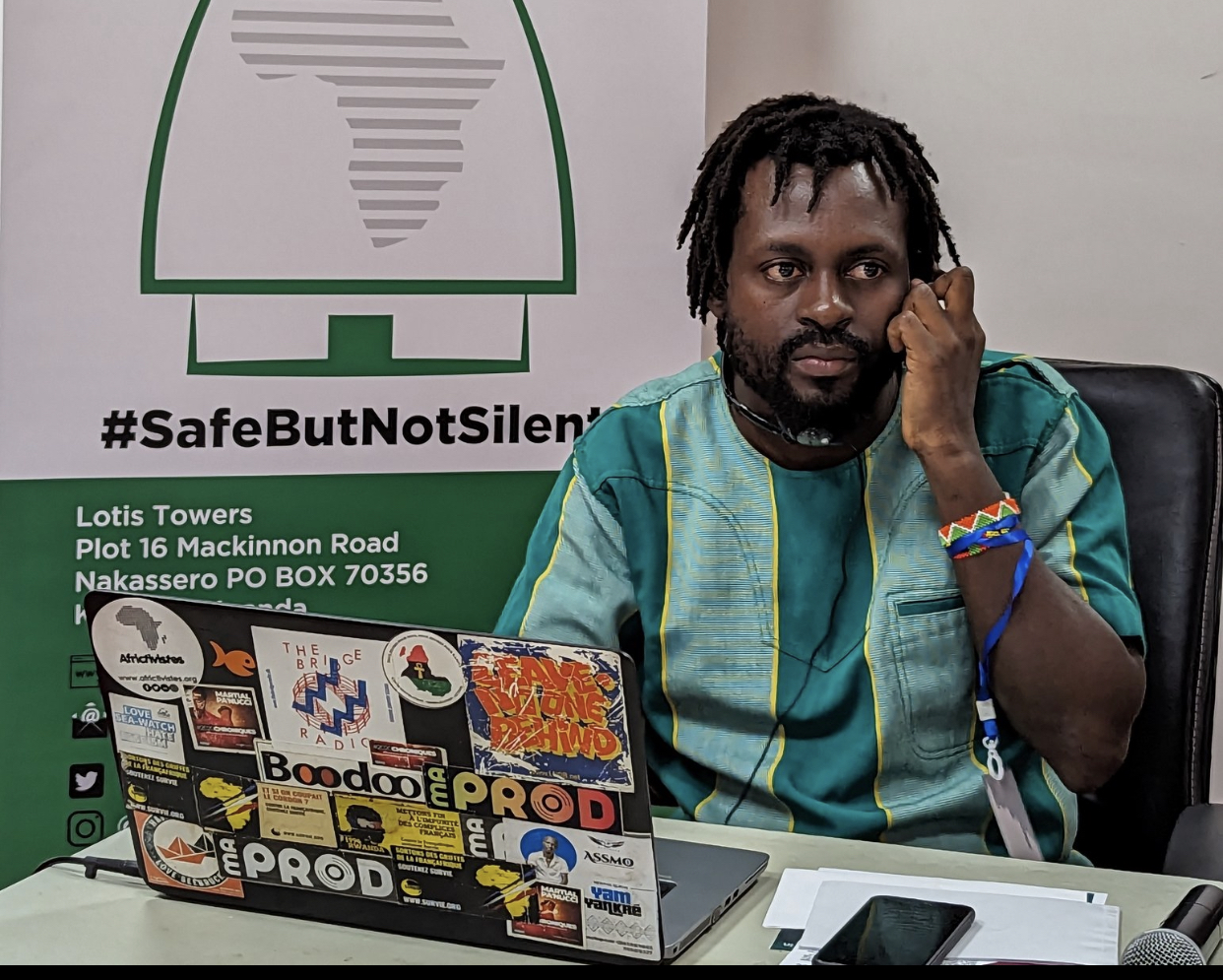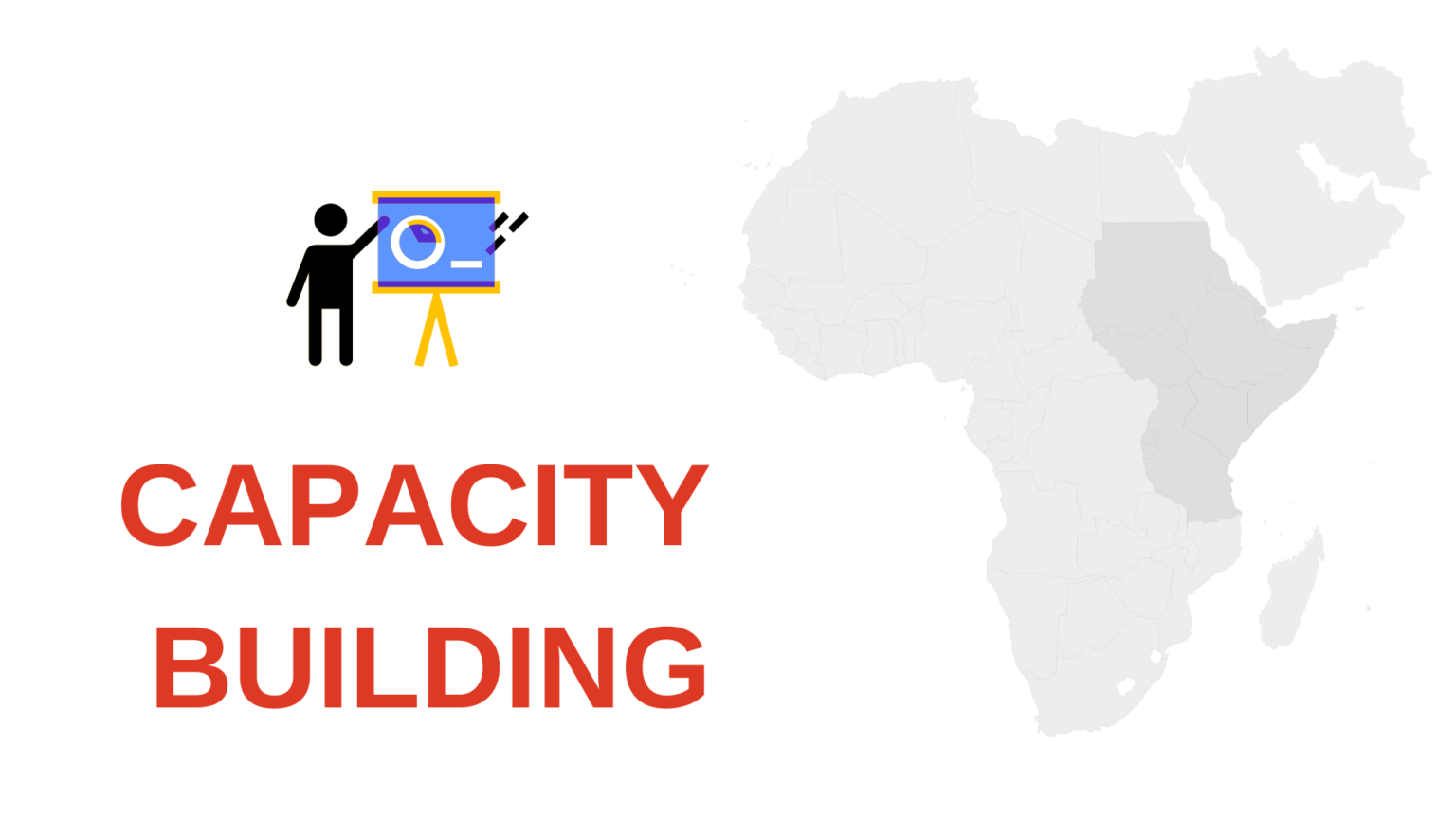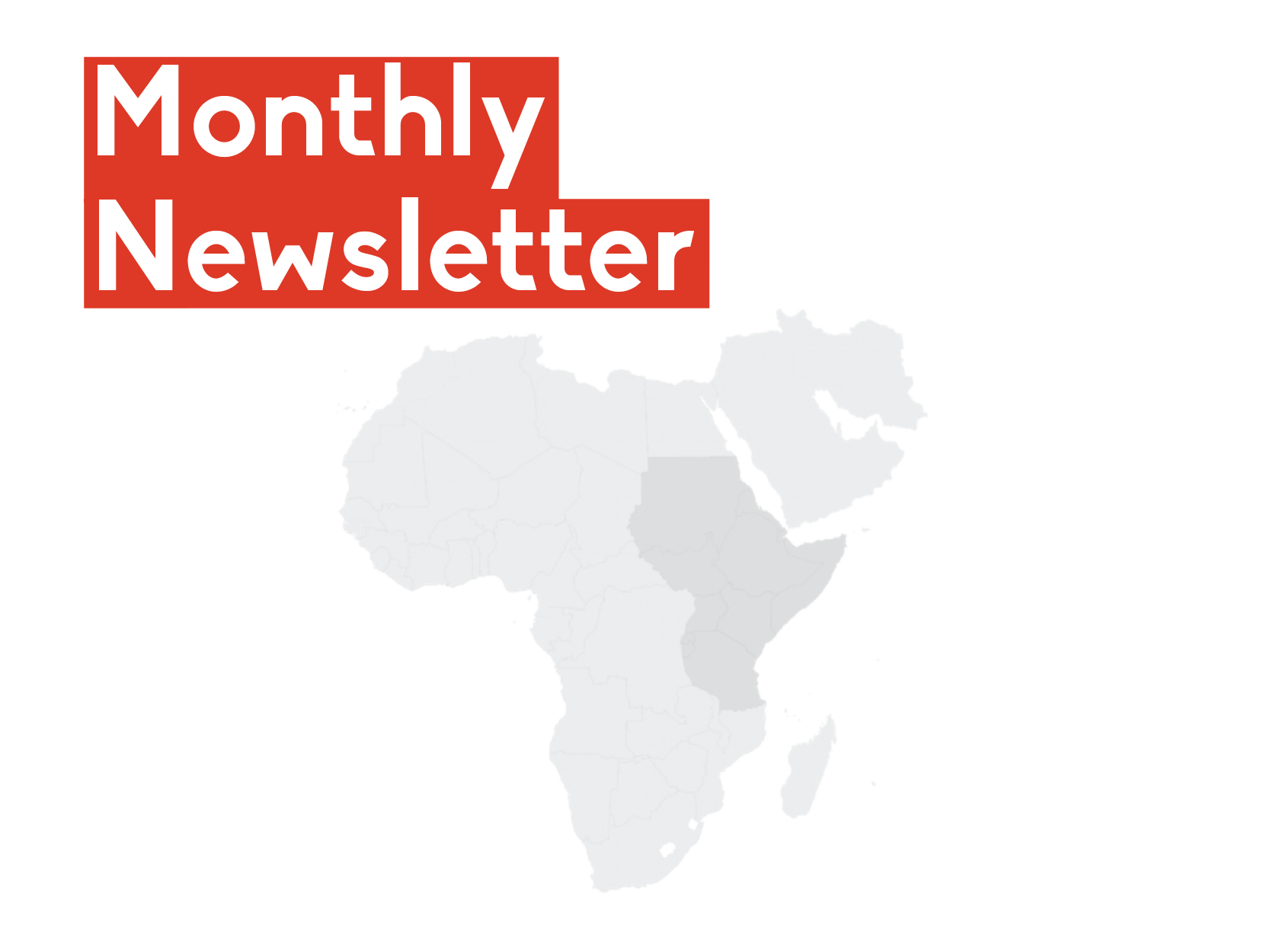Dear Friends
September was a very busy month for us at home and abroad. At home, we completed our relocation to our new premises on Lotis Towers, Plot 16, Mackinnon Road, Nakasero in the heart of Kampala. On 8 September, we hosted our friends and development partners on the occasion of our official office opening, where speaker after another reiterated the importance of our work, and how the world is better served with more human rights defenders (HRDs).
On the international stage, I joined leaders of over 50 international human rights and humanitarian organisations in urging for more aid and global attention to Sudan, where over 20 million people – 42% of the country’s population now face acute food insecurity as a result of military conflict that has beset the country for now six months. Together with my colleagues, we called for holding the conflict’s protagonists and enablers accountable, as a way of averting the worsening of the conflict.
In keeping with our firm opposition to Russia’s war of aggression in Ukraine, ahead of the 54th session of the UN Human Rights Council (council), I joined my colleague Prof. Adriano Nuvunga, to call for the continued international isolation of Russia, by rejecting its application to rejoin the Human Rights Council from which it was ousted a year ago. In our joint op-ed published in South Africa’s Daily Maverick, Prof. Nuvunga and I argued the successful re-election of Russia while it continues its rights violation in Ukraine would deal a big blow to the council’s credibility, impairing its ability to confront future international human rights violations.
At the 54th session of the Human Rights Council (HRC54) which opened on 11 September, we continued to rally the council to pronounce itself strongly on the safety and protection of HRDs, who continue to be victims of malign state and non-state actors. We particularly highlighted the case of Eswatini HRD Thulani Maseko, who was assassinated in cold blood early this year, and whose killers have yet to be brought to justice.
As I highlighted in a media engagement with Uganda’s NBS Television, states bear the primary responsibility for protecting HRDs, and we’re committed to supporting National Human Rights Institutions (NHRIs) to continue challenging their states and governments to live up to their commitments in their national constitutions and obligations under international law.
We will also continue to show solidarity with NGOs and HRD coalitions that like us have chosen to take on the responsibility of standing up for the rights of HRDs, offering much needed support and solidarity to these courageous individuals who champion the rights of others at great cost to themselves. At the end of this month, I undertook such solidarity trips to Kenya, and Mozambique, and will continue to do the same elsewhere to shore up the efforts of HRD-defending organisations across our beloved continent.
I invite you to read more about our month’s work.
Hassan Shire
Executive Director, DefendDefenders
Chairperson, AfricanDefenders
Human Rights Defender of the Month: Martial Pa’nucci

Martial Pa’nucci is a child of what is fondly known as Africa’s second liberation. In 1990 when he was born, the Republic of Congo, like many other countries in Sub-Saharan Africa, was undergoing a transition from one-party rule to multi-party democracy, following the collapse of the Soviet Union.
Yet developments in ordinary people’s lives were not as optimistic. Pa’nucci was born in one of Brazzaville’s ghettos to a polygamous family of two mothers and 19 siblings, where survival was a daily exercise in courage. When he was two, his father died, followed in quick succession by many of his siblings. Pa’nucci did not start school until he was nine, and he had to do odd jobs – from barbering to plumbing to earn his stay there, lest he dropped out like many of his peers.
Updates from DefendDefenders

- Ahead of the 54th session of the UN Human Rights Council (HRC54, 11 September-13 October 2023), DefendDefenders led and coordinated a call by 120 civil society organisations for the establishment of an independent investigative mechanism in Sudan. Such a mechanism, with a mandate to collect and preserve evidence, and identify those responsible, will aid the pursuit of justice for victims.
- Our advocacy at HRC54 also focused on Burundi. Ahead of the session, we called for the renewal of the Special Rapporteur’s mandate. During the session, we conducted a round of meetings and held a public event with the Special Rapporteur.
- In total, we made eight oral statements to HRC54, addressing our priority countries and other situations.
- From 3 – 7 September, DefendDefenders joined over 10 other NGOs and international organisations working around HRD protection and media freedom in Kenya, to explore ways of how to better protect at-risk HRDs exiled in Kenya. The meeting developed a joint advocacy strategy by the partners, specifically targeting the United Nations High Commission for Refugees to categorize HRDs as a vulnerable group to be prioritized in most processes.
- On 8 September 2023, AfricanDefenders participated in and facilitated a webinar session organized by the Network of National Human Rights Institutions (NANHRI) on the role of CSOs in executing the African Court on Human and People’s Rights’ decisions concerning civic space and HRDs.

Ahead of the 54th session of the UN Human Rights Council (HRC54, 11 September-13 October 2023), DefendDefenders led and coordinated a call by 120 civil society organisations for the establishment of an independent investigative mechanism in Sudan. Such a mechanism, with a mandate to collect and preserve evidence, and identify those responsible, will aid the pursuit of justice for victims.
Our advocacy at HRC54 also focused on Burundi. Ahead of the session, we called for the renewal of the Special Rapporteur’s mandate. During the session, we conducted a round of meetings and held a public event with the Special Rapporteur.
In total, we made eight oral statements to HRC54, addressing our priority countries and other situations.
From 3 – 7 September, DefendDefenders joined over 10 other NGOs and international organisations working around HRD protection and media freedom in Kenya, to explore ways of how to better protect at-risk HRDs exiled in Kenya. The meeting developed a joint advocacy strategy by the partners, specifically targeting the United Nations High Commission for Refugees to categorize HRDs as a vulnerable group to be prioritized in most processes.
On 8 September 2023, AfricanDefenders participated in and facilitated a webinar session organized by the Network of National Human Rights Institutions (NANHRI) on the role of CSOs in executing the African Court on Human and People’s Rights’ decisions concerning civic space and HRDs.
Opportunities
Do you know an outstanding human rights defender/organisation? Nominate them for Civil Rights Defender of the year.
Country Updates:
BURUNDI
In its interactive dialogue with the Special Rapporteur on the situation of human rights in Burundi, the Human Rights Council heard that despite some commendable geo-political steps to end Burundi’s regional and international isolation, President Evariste Ndayishimiye’s government is yet to undertake meaningful structural reforms to improve Burundi’s human rights situation. In an interactive session with the Council, the Special Rapporteur observed that while Burundi had reopened its borders with its neighbours, including Rwanda, and taken part in the fourth cycle of the Universal Periodic Review, there has been little progress in reforming justice institutions, without which they have remained “instruments of human rights violations.”
ERITREA
Eritrean forces have continued to commit war crimes including sexual violence in Ethiopia’s northern region of Tigray, despite a truce to end the violence signed last year between the Tigrayan Peoples Liberation Front(TPLF) and the Ethiopian Federal Government which mandated the withdrawal of Eritrean troops from Tigray. The latest report by the International Commission of Human Rights Experts on Ethiopia (ICHREE) noted that while the truce may have mostly silenced the guns, human rights violations in Tigray were grave and ongoing with Tigrayan forces as culpable as their Ethiopian counterparts.
ETHIOPIA
Following the report by the ICHREE that noted ongoing human rights violations in Northern Ethiopia including widespread and systematic sexual violence against Tigrayan women and girls, starvation, forced displacement, and arbitrary detention, Human Rights Watch called upon the UN Human Rights Council to uphold the ICHREE’s recommendations to maintain investigations into past and ongoing violations, by renewing the investigation’s mandate.
The Ethiopian Human Rights Commission noted that it was concerned by increasing human rights violations in the country’s Amhara region, including “attacks targeting civilians, extra-judicial killings and arbitrary detention.” The Ethiopian Federal Government declared a six-months state of emergency in Northern Amhara in August, which gives the government powers to arrest people without a court warrant, among other extra-judicial leeway. The Commission called upon the government to ensure that all actions taken under the state of emergency are “guided by the fundamental principles of necessity, proportionality, non-discrimination, and legality.”
SOMALIA:
Somalia’s Banadir Police Chief Moalin Mahdi announced that criticism of the government, the police, the army or the country’s judicial system would not be tolerated, and that anyone criticising a police action or a court decision would be taken to court. The pronouncement henceforth forbids individuals and the media from criticising the President and his family and raises concerns about freedom of speech and media freedom in Somalia.
The Committee to Protect Journalists(CPJ) called upon Somali authorities to credibly investigate an incident in which Radio Baraawe was shot at, on 12 August, leaving bullet holes in the studio building and forcing the radio to stay off air as a result. The attack contributes to the climate of insecurity experienced by Somali journalists, which has routinely distinguished Somalia as one of the worst places to be a journalist on earth. “This incident has effectively silenced a station that was a crucial source of news and information for a minority community,” said CPJ’s sub-Saharan Africa representative, Muthoki Mumo.
SOUTH SUDAN
South Sudan media continues to work in a difficult environment due to a lack of access to information, censorship and harassment, one of the country’s top media managers has noted. John Wulu, the manager and chief editor of the Juba-based Top FM noted that media and journalists continue to face harassment, threats and censorship, especially when investigating and reporting corruption. The worst threats are suffered by women journalists, with gender-based violence and harassment making many of them exit journalism.
SUDAN
Heads of over 50 human rights and humanitarian organisations around the world appealed for more aid to Sudan and for the UN to move swiftly to sanction the impunity of Sudan’s military leaders that has plunged the country into political and humanitarian disaster. The appeal notes that despite hundreds of thousands of people killed and millions displaced since the conflict broke out in April, Sudan’s warring parties continue to undermine efforts to deliver aid safely. The NGO leaders called on the United Nations Security Council to take fast action to avert further deterioration of the crisis.
DefendDefenders and 113 other African and international organisations called for the creation of a UN mechanism to ensure accountability for international crimes and to ensure the protection of civilians . The multinational call follows the intensification of violence and human rights violations in Sudan, including in Darfur, Blue Nile and the States of North Kordofan and South Kordofan.
TANZANIA
Tanzania’s opposition leader and former presidential candidate Tundu Lissu was released after being arrested for hours, on accusation of holding an illegal assembly. Lissu has been holding several rallies since returning from exile in January, during which he has criticized the Samia Suluhu-led government for several rights violations. Since June 10, 2023, the Tanzanian authorities have detained or threatened at least 22 individuals, including demonstrators, after they voiced their opposition to the ratification of a port management agreement by the Tanzanian National Assembly.
The African Court on Human and People’s Rights has ordered Tanzania to put an end to corporal punishment in its prisons as a way of aligning its judicial systems with the African Charter on Human and Peoples’ Rights to which Tanzania is signatory. The Court’s ruling follows an appeal by one Yassin Maige, in which he alleged that he was routinely flogged while in detention. The African Court found that such practices violated prohibitions of torture, cruel and inhuman treatment as provided in Article 5 of the African Charter.
UGANDA.
A new report by Uganda’s African Centre for Media Excellence ranked journalists as the leading victims of the Ugandan government’s assault on freedom of expression. The report documenting violations between August 2022 and August 2023 noted that journalists constituted 61% of total victims of the clampdown on freedom of expression. It further noted that 24 of them were injured during assaults, with the Uganda Police being the biggest perpetrator of violations. Uganda is ranked 133rd in the Reporters Without Borders press freedom index.

